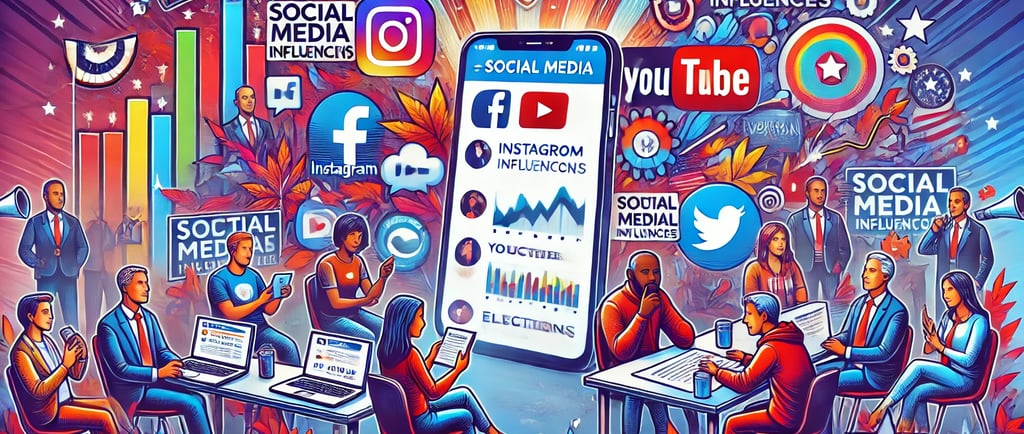The Impact of Social Media on Elections: The Role of Influencers
📱 The Influence of Social Media in Modern Elections 🗳️ Social media has revolutionized the way elections are influenced and conducted. Platforms like Instagram, YouTube, and Twitter have become pivotal in shaping political opinions and spreading campaign messages.
POLITICS


The Rise of Social Media in Political Discourse
In recent years, social media platforms have transformed the landscape of political communication. With the ascent of platforms like Instagram, YouTube, and Twitter, traditional forms of political discourse have shifted dramatically. Social media has become a primary source of information for millions, particularly young voters who turn to influencers for guidance on political matters. As a result, the influence of social media influencers on elections has gained notable significance, bridging the gap between politics and the general populace.
The Role of Influencers in Shaping Political Opinions
Social media influencers wield considerable power in shaping the political opinions of their audience. They often possess an extensive following and a reputation for relatability, allowing them to effectively convey political messages. As influencers navigate the complex political landscape, their endorsements or critiques of candidates and policies can sway public perception. This phenomenon raises critical questions about the authenticity of the information shared and the motivations behind influencers' political content. Authenticity becomes paramount; voters increasingly trust what they perceive to be honest and transparent communication.
The Challenges of Authenticity and Bias
While the influence of social media in elections is undeniable, concerns about bias and the authenticity of content shared by influencers persist. The rise of misinformation campaigns and the spread of partisan rhetoric can undermine the credibility of political discourse online. As individuals seek out influencers for guidance, it is crucial for them to remain vigilant and discerning about the information consumed. Understanding the potential biases embedded within social media content is essential for maintaining informed political opinions in an age where information is abundant but not always accurate.
Moreover, the algorithms governing social media platforms often create echo chambers, amplifying particular viewpoints and discouraging diverse political discourse. This phenomenon can lead to polarized opinions, further complicating public understanding of complex political issues. As the role of social media in shaping elections continues to evolve, it is imperative for consumers of content to actively seek a variety of perspectives and engage in critical thinking.
Conclusion: Embracing Informed Engagement
In conclusion to Political news for today, the influence of social media in elections, particularly through the lens of social media influencers, plays a vital role in shaping political opinions. As consumers of content navigate this complex terrain, the responsibility falls on both influencers and audiences to prioritize authenticity and transparency in political discussions. Through informed engagement, individuals can leverage social media's potential while critically analyzing the content presented to them, ultimately contributing to a more educated electorate. The future of democratic engagement may well depend on our ability to discern fact from fiction amidst the noise of social media.
